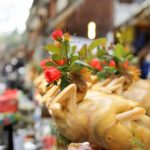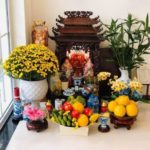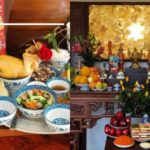For a long time, the practice of cúng has been considered a beautiful tradition in Vietnamese culture. However, to avoid unnecessary mistakes, in addition to equipping yourself with knowledge about how to prepare and what bai to use, you should also know who will be reciting the văn khấn cúng ông Táo and the things to keep in mind when doing so.
1 The Significance of the Ông Táo Worship Tradition
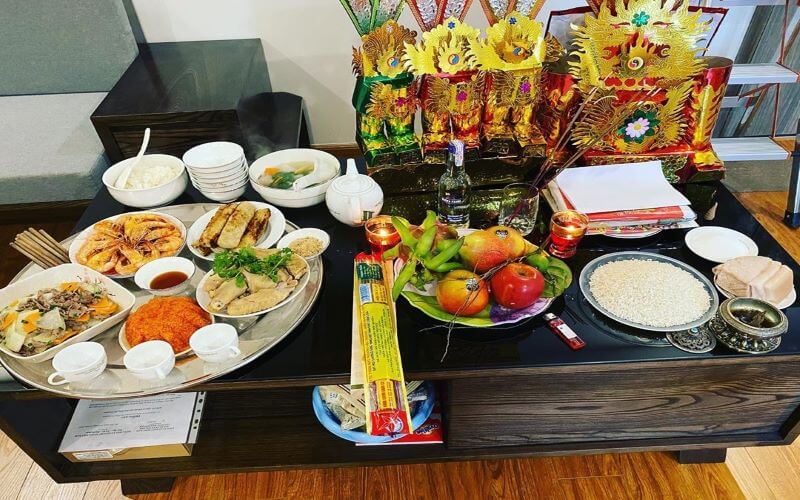 Offering ceremony for Ông Công Ông Táo
Offering ceremony for Ông Công Ông Táo
According to Vietnamese beliefs, on the 23rd of the twelfth lunar month every year, the Kitchen Gods return to Heaven to report to the Jade Emperor about the events that have occurred on Earth during the past year.
Therefore, on this day, Vietnamese families prepare a ceremonial send-off for the Kitchen Gods, wishing that they will speak only of the good things that happened and ask for forgiveness for any mistakes made during the year.
For further reference:
2 Who Should Recite the Văn Khấn Cúng Ông Táo?
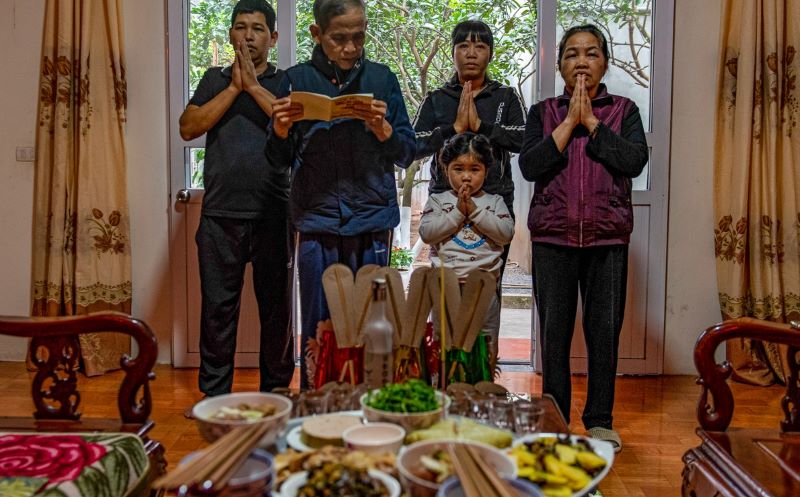 The head of the household is the most suitable person to recite the worship text
The head of the household is the most suitable person to recite the worship text
Ideally, the head of the household, either the husband or the wife, should recite the worship text. What matters is demonstrating sincerity and respect towards the deities. Other family members can also participate in the worship ceremony.
Firstly, give thanks to the deities for bestowing blessings of health, peace, and happiness upon the family for the past year. Secondly, ask for forgiveness for any wrongdoings or mistakes made during the year.
3 Things to Keep in Mind When Reciting the Văn Khấn Cúng Ông Công, Ông Táo
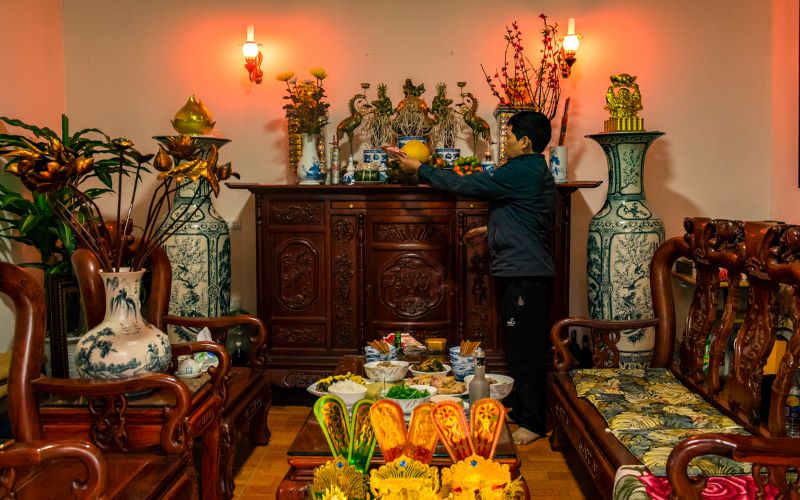 Maintain cleanliness and dress modestly and respectfully
Maintain cleanliness and dress modestly and respectfully
When reciting the worship text, it is important to maintain cleanliness and dress modestly and respectfully to show reverence to the deities. Avoid wearing shorts, sleeveless shirts, or short skirts.
Recite the text with a serious and sincere attitude, speaking clearly and audibly; otherwise, it may be considered disrespectful and could bring bad luck.
When reciting the text, refrain from asking for wealth and prosperity, and instead, request that the Kitchen Gods only report the good deeds of the family.
Additionally, preparing the offerings, including food, fruits, and wine, is equally important in the ceremony of seeing off the Kitchen Gods to Heaven.
We hope that this information will help you successfully perform the ceremony. Wishing you and your family a happy and cozy holiday season.
Choosing hen for incense lighting. When to choose a rooster and when to choose a hen, many people still don’t know.
In conclusion, the ritual of lighting incense with roosters and hens in Vietnamese culture holds immense symbolic significance. It is a way of communicating with the spiritual realm, seeking blessings, and honoring ancestors. This captivating tradition adds depth and charm to Vietnam’s rich cultural heritage.

























